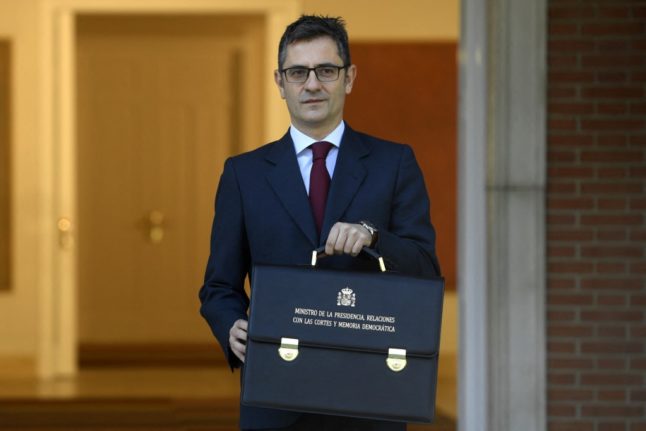The government in July introduced a draft bill to slap a temporary 4.8 percent charge on banks’ net interest income and net commissions in 2023 and 2024 to fund measures to ease cost of-living pressures.
In a non-binding legal opinion published Thursday, the ECB recommended Madrid conduct a “thorough analysis of potential negative consequences for the banking sector” of the tax.
This is needed “to ensure that its application does not pose risks to financial stability, banking sector resilience and the provision of credit.”
Asked about the legal opinion on Friday, Spain’s Economy Minister Nadia Calviño said the government had “already taken into account the questions raised” by the ECB when it drew up the tax.
Spain’s Minister of the Presidency Felix Bolaños told Spanish public broadcaster RTVE that his government will “study in detail” the ECB’s report and that his administration is open to “improving it”, whilst stressing that the ECB’s verdict is “non-binding”.
Spanish banks have posted record profits and have “very high solvency ratios” so there is “no reason” for this temporary tax” to lead to less credit being granted by lenders, she added.
Top executives at Spanish lenders such as Santander and BBVA have said that the proposed tax would directly hit their profitability.
Socialist Prime Minister Pedro Sánchez’s government has said it expects to raise around €3 billion with the tax by 2024, which it will use to fund measures to help consumers deal with soaring inflation.
Like other countries, Spain has been struggling with soaring inflation as a result of the fallout from the war in Ukraine and the reopening of the economy after pandemic-related lockdowns.
Inflation in Spain peaked this summer at 10.8 percent in July, its highest level in 38 years, before moderately slowing to 7.3 percent in October — still well above normal levels.



 Please whitelist us to continue reading.
Please whitelist us to continue reading.
Member comments